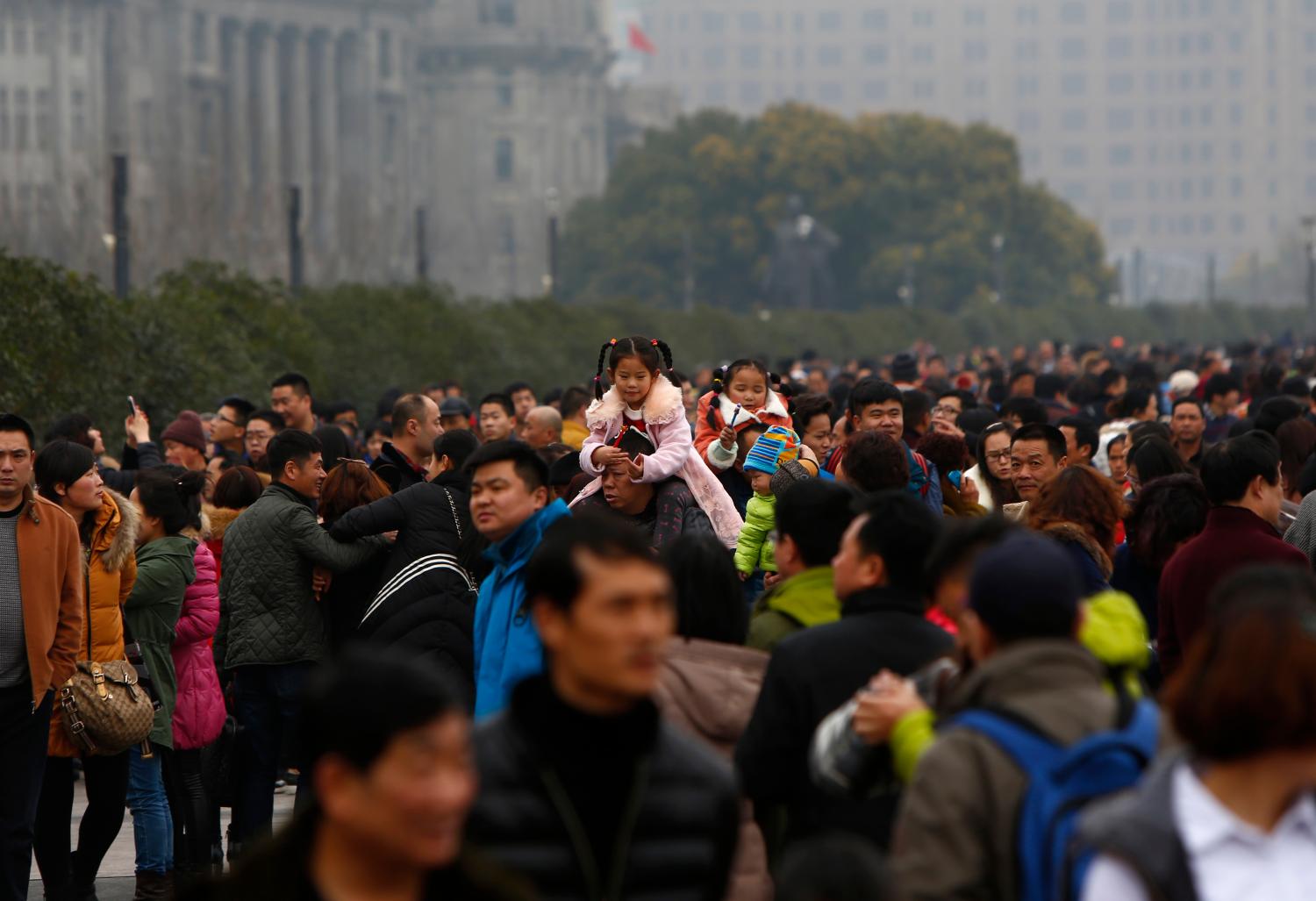The past two decades in China brought unprecedented rates of economic growth, development, and poverty reduction. Indeed, much of the reduction in the world’s extreme poverty rates during that time can be explained by the millions of people in China who exited poverty. GDP per capita and household consumption increased fourfold between the years 1990 and 2005.1 China jumped 10 places forward on the Human Development Index from 2008 until 2013, moving up to 93 of 187 countries, and life expectancy climbed to 75.3 years, compared to 67 years in 1980.
Yet during the same period, life satisfaction levels in China demonstrated very different trends—in particular dropping precipitously in the initial stages of rapid growth and then recovering somewhat thereafter. The drops in life satisfaction were accompanied by increases in the suicide rate and in incidence of mental illness. China had one of the highest suicide rates in the world in 1990s: approximately 23.2 suicides per 100,000 people per year from 1995 to 1999 (with the rate gradually falling to 7.8 per 100,000 by 2012). Mental health disorders, on the other hand, increased as suicide rates fell (perhaps because more individuals sought treatment). The annual growth rate of inpatients admitted into mental health hospitals was 13.4 percent from 2007 to 2012 (reaching 1.2 million people). Outpatient visits increased at a similar rate—12.4 percent (reaching a magnitude of 27 million outpatient visits in 2011).
Is this an anomaly? Is there something unique about China’s life satisfaction and well-being more generally? Or is it China’s growth trajectory? While income metrics provide us with one story of China’s progress, well-being metrics—including measures of mental health—are telling us a very different story. What explains the discrepancy?
Surely each country has a unique trajectory, and China’s economic boom occurred as centrally planned macroeconomic management was being replaced by free market principles and accompanying changes in social welfare and other institutions (although not political ones). Yet China’s unhappy growth story also fits into a broader set of progress paradoxes related to rapid change and development in countries around the world. While change associated with economic progress usually brings increases in well-being levels over time, in the short term it is often associated with drops in life satisfaction and other dimensions of well-being. Changes in the pace and nature of economic growth tend to bring increases in insecurity (as rewards to different skill sets change) and in inequality (as there are winners and losers in the process).
Years ago we found that upwardly mobile respondents in growing developing economies reported lower levels of satisfaction with their lives than very poor respondents with no change in their income levels.
These latter trends were particularly stark in the case of China due to the dismantling of traditional safety nets as millions migrated from rural to urban areas in search of new opportunities. In addition, although not the focus of this paper, many other transition economies made concurrent transitions to political democracy, but China did not. In general, political freedom is positively associated with well-being in countries around the world. What clearly stands out in China’s case, though, is the rapid nature of economic growth and poverty reduction on the one hand, and trends in life satisfaction going in the opposite direction (at least in the initial growth years) on the other.
Indeed, one of the early findings—and paradoxes—in the well-being literature, which is particularly relevant to China, is that of “happy peasants and frustrated achievers.” Years ago we found that upwardly mobile respondents in growing developing economies reported lower levels of satisfaction with their lives than very poor respondents with no change in their income levels. Part of the trend is explained by the raised expectations and access to new information that come with upward mobility. We found that our frustrated respondents were more concerned about income inequality than were their non-frustrated counterparts at equivalent income levels. Part of the explanation could be reverse causality, as more frustrated, unhappy respondents may be more likely to seek change and to better their situation. Our more recent work on the well-being of migrants is suggestive along these lines. We find potential migrants from Latin America (and in some transition economies) are wealthier and more educated than the average, but also less happy and more critical of their economic situations prior to migrating. They then tend to make modest gains in well-being once they actually migrate.
In this paper we take advantage of a new national-level well-being survey for China that has detailed information about health (reports of chronic and acute health problems, as well as anxiety and depression), sufficiency in rest, frequency of leisure activities, education, income, marital status, formal household registration (hukou), and housing status in addition to life satisfaction to explore channels that might be driving China’s progress paradox. Our work is distinct from previous studies of life satisfaction in China in its exploration of the relationships between mental health/life satisfaction and physical health (chronic disease) and also time use (sufficiency in rest or frequency of leisure activities). We build on detailed work by one of the authors—Graham—on life satisfaction trends around the world, progress paradoxes, the links between happiness and health, and the detailed knowledge of and work on China’s economy and public institutions by the others —Zhou and Zhang.
We find that the standard determinants of well-being are the same for China as they are for most countries around the world. At the same time, China stands out in that unhappiness and reported mental health problems are highest among the cohorts who either have or are positioned to benefit from the transition and related growth—a clear progress paradox. These are urban residents, the more educated, those who work in the private sector, and those who report to have insufficient leisure time and rest. We hope that our findings contribute new insights to the extensive work that has already been done on life satisfaction in China, from the perspective of the linkages between well-being and mental health in particular.




